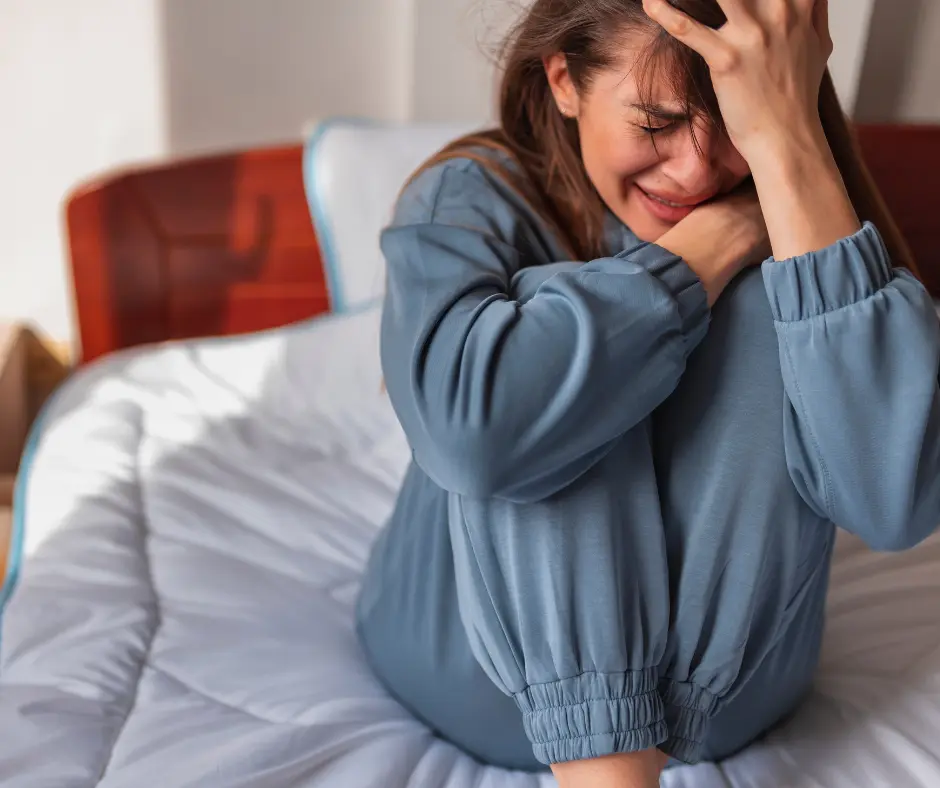Anxieties
Are you experiencing unexplained fear?
- Do you feel threatened by some danger?
- Are you overwhelmed by bad premonitions?
- Are terrifying worries taking over your mind?
- Do you feel restless and agitated?
These states are often accompanied by heart palpitations, headaches, nausea, vomiting, or trembling hands.

Maybe you've managed to handle minor unpleasant situations before, but one day the trigger was so intense that you could no longer control your anxiety.
Did you feel like you were going crazy, completely powerless, paralyzed by extreme fear? That was a panic attack.An anxiety attack can sometimes lead to sensory blackouts or even complete loss of consciousness.
What’s the difference between fear and anxiety?
We are equipped with fear as a survival mechanism. Fear is normal and, in life-threatening situations, even necessary.
“Healthy” fear is linked to a known and specific object or situation.
We fear a suspicious person we encounter or a growling dog running loose. This fear disappears when the threatening situation passes.

But what about the fear that creeps in without a clear cause?

Anxiety is a long-lasting, persistent feeling of fear without any obvious reason, powerful enough to disrupt normal life.
Your mind gets stuck in a loop of fearful thoughts, affecting your well-being over time.
It influences your behavior and decisions
You avoid elevators, stay away from shopping malls, fear talking to strangers, or refuse to cross the street. Anxiety can manifest physically:Heart palpitations, chest tightness, excessive sweating, shortness of breath, or dizziness.
Would you wish for:
- Live a normal life again?
- Function without fear?
- Go out, drive, take public transport, or simply go shopping without anxiety?
But you don’t know where to start?
Don’t want to spend years in therapy with little progress? Or rely on medications?
Doctors often prescribe benzodiazepine anxiolytics (like Alprazolam, Diazepam, Xanax, Lexaurin, Neurol, etc.).
These medications help reduce anxiety, phobias, restlessness, tension, and fear.


Note: Anxiolytics are not antidepressants.
They are meant for short-term use to manage acute anxiety.
Unfortunately, they are often overused, leading to dependency, which can make true recovery harder.
The problem arises when antidepressants are prescribed long-term without any accompanying therapy to address the root cause.
Side effects of chemical medications:
- Increased appetite, weight gain
- Sleep disturbances
- Low libido
- Dry mouth
- Memory problems
- Fatigue, drowsiness, low energy
- Skin issues like acne or worsening eczema
- A general lack of joy in life
Chemical medications tend to numb the bad and the good - without resolving the underlying problem.

Dr. Edward Bach, the creator of Bach essences, believed in treating the root cause of illness, not just the symptoms.
He discovered that plants hold the ability to find and heal psychological and emotional wounds - blocks that may have formed at any point in life, preventing the body from functioning normally.
By addressing the source of fear and anxiety, the body can heal, and symptoms may disappear.
To truly heal, it's essential to find and remove the core problem — something Bach essences are designed to do. Patience and consistency are key, as a complete course lasts at least 3 months.
If you're unsure where to start, schedule a professional consultation.
I also highly recommend adding Vitamin C to your daily routine. It supports not only your immune system but also your mental well-being.
This post is for informational purposes only and should not replace professional medical advice. If you’re experiencing any of the symptoms mentioned above, please consult your doctor for an accurate diagnosis and suitable treatment. Bach essences are not a replacement for antidepressants. Meg Mašková does not recommend stopping any prescribed medication (including antidepressants or anxiolytics) without first consulting the prescribing doctor. Thank you for understanding.


